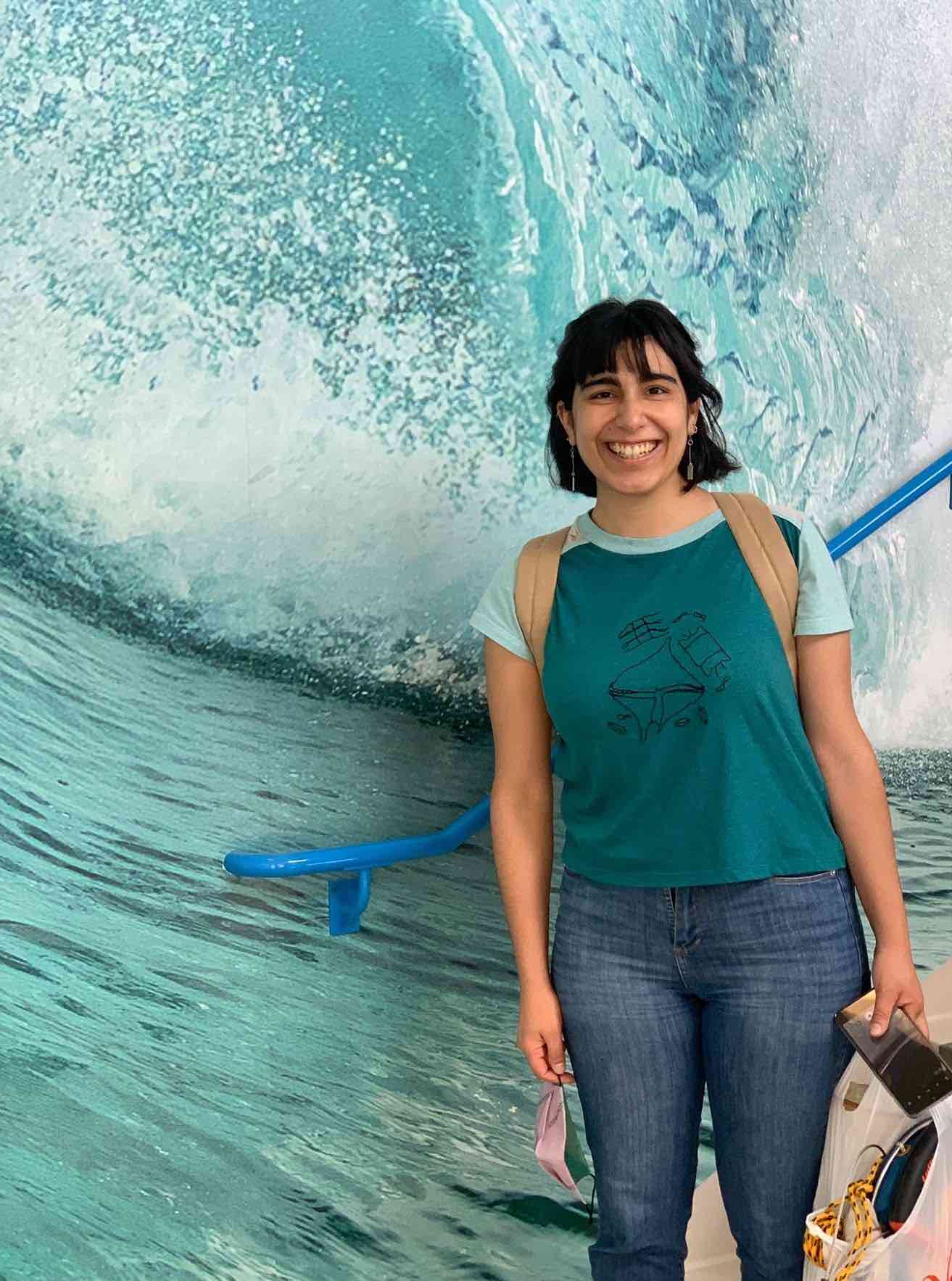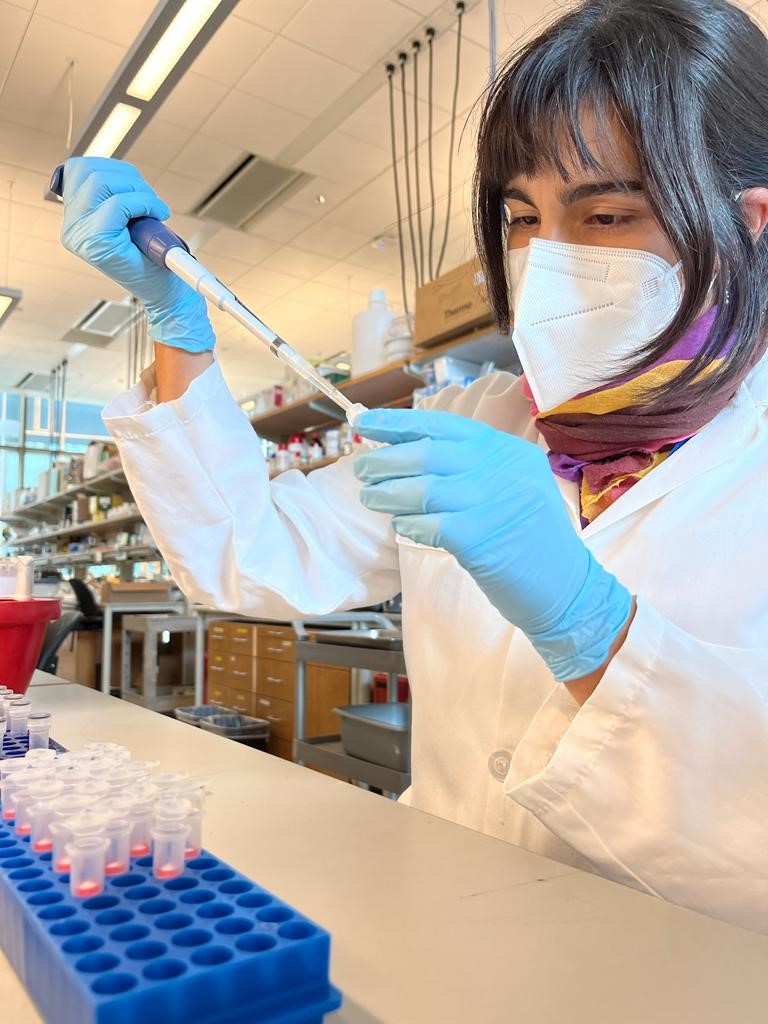 Martina’s project was titled “Diversity of bloom-forming phytoplankton species in Western Antarctic Peninsula (WAP) nearshore waters”.
Martina’s project was titled “Diversity of bloom-forming phytoplankton species in Western Antarctic Peninsula (WAP) nearshore waters”.
At the time of her Fellowship Martina Mascioni was a PhD student at the División Ficología, Facultad de Ciencias Naturales y Museo, Universidad Nacional de La Plata, Argentina. Her Fellowship was hosted by the Scripps Institution of Oceanography, United States, where she worked with Dr Maria Vernet between July 2022 and October 2022.
Studies on the phytoplankton community composition and dynamics are needed to understand futures changes in the western Antarctic Peninsula (WAP) ecosystem. Nearshore WAP waters, fjords, and channels congregate predators like baleen whales, seals, and penguins. Understanding the microbial diversity that sustains this food web is fundamental due to expected modifications in this region by increasing meltwater delivery from glaciers, in particular bloom-forming species that cycle a large proportion of the carbon in surface waters.
Since 2016, the Citizen Science project FjordPhyto has been collecting water samples from the WAP coastal areas during the spring-summer season, from November to March. These samples have allowed researchers to understand the phytoplankton composition of these underexplored nearshore areas. Martina’s project involved undertaking a series of genetic analyses of these samples. Martina worked in the laboratory of Dr Andrew Allen at the J. Craif Venter Institute to perform molecular analysis, working on extraction, purification and quantification of DNA from different samples. The primary output of this work was the numerous genetic sequences obtained that will allow identification of the organisms that form blooms, as well as those organisms that could be new species for the WAP.
 Data analyses of the sequenced WAP blooms are underway. Martina and her supervisor into to publish the results and protocols developed, with collaborators at Scripps and JCVI, and to present preliminary results during upcoming international conferences.
Data analyses of the sequenced WAP blooms are underway. Martina and her supervisor into to publish the results and protocols developed, with collaborators at Scripps and JCVI, and to present preliminary results during upcoming international conferences.
About the impact of her SCAR Fellowship, Martina says the following:
This internship is definitely one of the highlights within my PhD career. Although this internship was delayed for 2 years during the COVID-19 pandemic and occurred later than expected, at the end of my PhD, it allowed me to create links and connections with other PhD students, postdocs, and researchers from other institutions.
This visit was an excellent way to come back to lab work after two years of being remote and virtual, it allowed me to get closer to a lot of colleagues with whom I once exchanged e-mails or a zoom meeting, being able to interact in person was highly rewarding and very valuable. It also allowed me to expand my professional circle and learn how people work in other parts of the world.
Martina intends to continue her participation in the FjordPhyto project and collaboration with her host Dr Maria Vernet after completing her PhD.
The full report is available here: Martina Mascioni 2022 Fellowship Report and on the SCAR Fellows webpage together with the full list of previous SCAR Fellows and available reports.
The SCAR Early-Career Fellowship Programme is designed to encourage the active involvement of early career scientists and engineers in Antarctic scientific research, and to build new connections and further strengthen international capacity and cooperation in Antarctic research. The work must be carried out in a research group of a SCAR member country different from that of the applicant’s origin and current residence.
